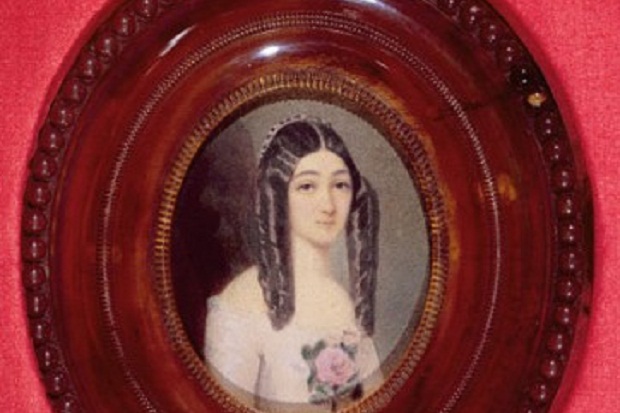The forecast is bad. Football is back. Gloom strikes. Cure the malaise by reading the book reviews in this week’s Spectator. Here’s a selection:
Richard Davenport-Hines introduces the celebrated American novelist and businesswoman Willa Cather to a British audience:
‘Cather was a pioneering career woman who in the late 1890s supported herself as a magazine editor and then as newseditor at the Pittsburgh Leader — an unprecedented post for a woman. She was later a successful managing director ofMcClure’s Magazine. With her gumption and vitality, she was a stalwart among women facing the ‘rough-and-tumble’ of competitive work. It is regrettable that her book Office Wives — a collection of stories about women in business — was never completed.’
Jane Ridley is captivated by Julie Kavanagh’s biography of the courtesan who inspired La Traviata and The Lady of the Camellias.
‘Alphonsine was born in 1824 in Normandy. Her peasant family could hardly have been worse. Today, social workers would have put her in care. She was probably sexually abused. Her father was a violent, promiscuous alcoholic; when he tried to kill her mother, the family broke up, and Alphonsine and her sister were farmed out to relations to be brought up in poverty. By the age of 14 she was working as a prostitute.
Aged 16, Alphonsine arrived in Paris. The capital’s demi-monde was a world which revolved around sex, and where bachelor ‘flâneurs’ prowled the streets searching for poor girls with beautiful faces. Alphonsine soon became the teenaged mistress of an older man. Right from the start, she was very high maintenance, bankrupting her lovers by spending vast amounts on expensive clothes. Conspicuous luxury was crucial to her career. She needed to be seen as a ‘poule de luxe’ in public places in order to attract a high class of admirer. A dizzying succession of rich men queued up to lavish money on her.’
Ian Thomson recommends an important new translation of Vasily Grossman’s An Armenian Sketchbook:
‘In 1960, Grossman’s great novel of Russia during the Hitler war, Life and Fate, was confiscated in typescript by the KGB. This was done at the height of the Khrushchev ‘thaw’, when a new political tolerance was supposedly in the air. Grossman’s crime had been to draw parallels between Nazism and Soviet Communism. The Hitler and Stalin regimes (as Trotsky had pointed out as long ago as 1936) were totalitarian twins that bore a ‘deadly similarity’. Grossman had been dead for 24 years when, in 1988, Life and Fate was finally published in the Soviet Union.
An Armenian Sketchbook displays all the humanity and candour of Grossman’s Red Star journalism, but with a difference. Grossman was in the early stages of cancer when he wrote the book in 1962 and the prose has acquired a death-haunted tone. In Soviet Armenia the Moscow authorities had hoped that Grossman would meet new people, consume lots of cognac and life-giving pomegranates and, most important, forget about the censorship inflicted on Life and Fate. But Grossman had taken ten long years to write his epic, Tolstoyan novel; whatever else it might be, An Armenian Sketchbook was hardly going to be a paean to Soviet idealism.’
Tobias Grey read Piu Marie Eatwell’s book and is shocked to discover that everything you ever thought you knew about the French is nonsense.
‘Other statistics show that France has become a nation of fast-food guzzlers After the United States, it is now the biggest market in the world for McDonald’s and the largest consumer of sushi in Europe. ‘By 2010, fast food accounted for seven out of ten meals eaten outside the French home,’ writes Eatwell, ‘and the length of the average meal had gone down to 31 minutes, from 1 hour 38 minutes in 1975.’
Despite its much-vaunted battle for cultural exception, it seems that, physically at least, France is beginning to resemble no other nation quite so much as the United States. This is particularly true of the once idyllic French countryside, where the outskirts of villages are ‘turning into a vast shopping mall’. According to Eatwell, ‘26 square metres of agricultural land are gobbled up by development in France every second’.’
And there’s more: Peter J. Conradi goes twitching to the ends of the earth. David Sexton reviews the latest collection of writings by the scandalous Nicholas Lezard. James Yorke delves into the history of the Stone of Scone. Ysenda Maxtone-Graham enjoys a delightful memoir by the resurgent 90 year old novelist Emma Smith. And Ben Hamilton reviews Jasper Gibson’s ‘bitterly funny’ debut novel, A Bright Moon for Fools.
Subscribers, you can read all of this by visiting the books homepage. Non-subscribers, follow the link below to take advantage of our incredible summer deal.






Comments